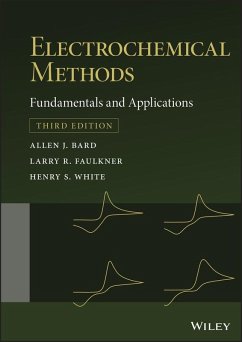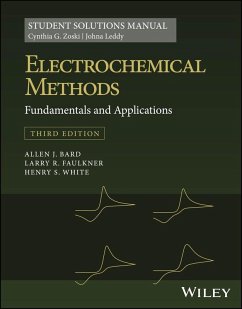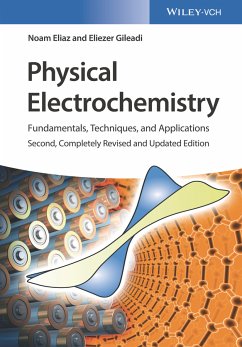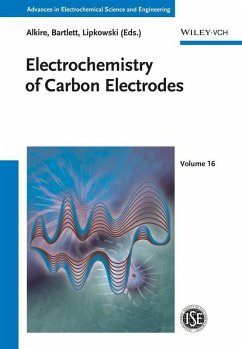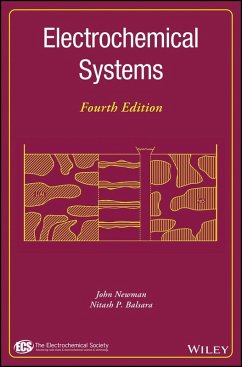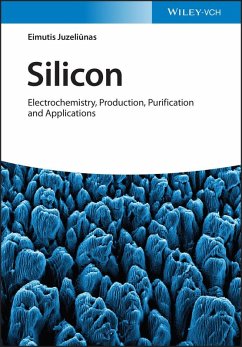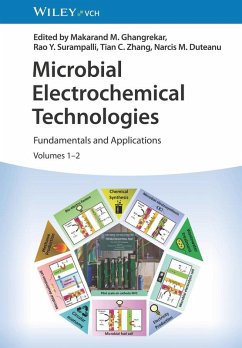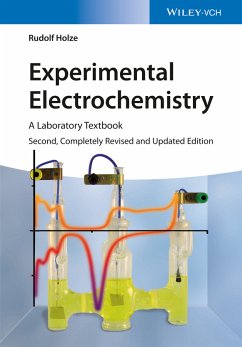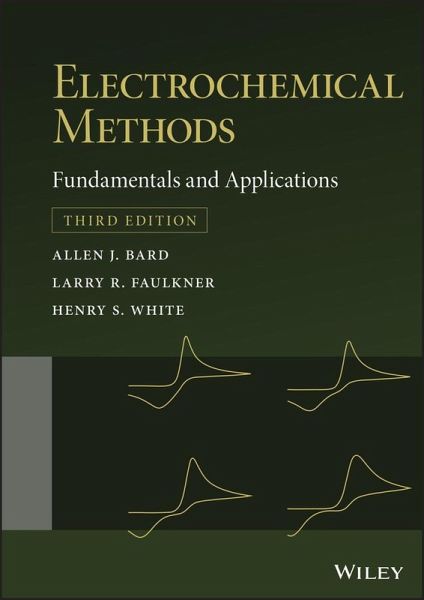
Electrochemical Methods (eBook, PDF)
Fundamentals and Applications
Versandkostenfrei!
Sofort per Download lieferbar
125,99 €
inkl. MwSt.
Weitere Ausgaben:

PAYBACK Punkte
0 °P sammeln!
The latest edition of a classic textbook in electrochemistry The third edition of Electrochemical Methods has been extensively revised to reflect the evolution of electrochemistry over the past two decades, highlighting significant developments in the understanding of electrochemical phenomena and emerging experimental tools, while extending the book's value as a general introduction to electrochemical methods. This authoritative resource for new students and practitioners provides must-have information crucial to a successful career in research. The authors focus on methods that are extensive...
The latest edition of a classic textbook in electrochemistry The third edition of Electrochemical Methods has been extensively revised to reflect the evolution of electrochemistry over the past two decades, highlighting significant developments in the understanding of electrochemical phenomena and emerging experimental tools, while extending the book's value as a general introduction to electrochemical methods. This authoritative resource for new students and practitioners provides must-have information crucial to a successful career in research. The authors focus on methods that are extensively practiced and on phenomenological questions of current concern. This latest edition of Electrochemical Methods contains numerous problems and chemical examples, with illustrations that serve to illuminate the concepts contained within in a way that will assist both student and mid-career practitioner. Significant updates and new content in this third edition include: * An extensively revised introductory chapter on electrode processes, designed for new readers coming into electrochemistry from diverse backgrounds * New chapters on steady-state voltammetry at ultramicroelectrodes, inner-sphere electrode reactions and electrocatalysis, and single-particle electrochemistry * Extensive treatment of Marcus kinetics as applied to electrode reactions, a more detailed introduction to migration, and expanded coverage of electrochemical impedance spectroscopy * The inclusion of Lab Notes in many chapters to help newcomers with the transition from concept to practice in the laboratory The new edition has been revised to address a broader audience of scientists and engineers, designed to be accessible to readers with a basic foundation in university chemistry, physics and mathematics. It is a self-contained volume, developing all key ideas from the fundamental principles of chemistry and physics. Perfect for senior undergraduate and graduate students taking courses in electrochemistry, physical and analytical chemistry, this is also an indispensable resource for researchers and practitioners working in fields including electrochemistry and electrochemical engineering, energy storage and conversion, analytical chemistry and sensors.
Dieser Download kann aus rechtlichen Gründen nur mit Rechnungsadresse in D ausgeliefert werden.




